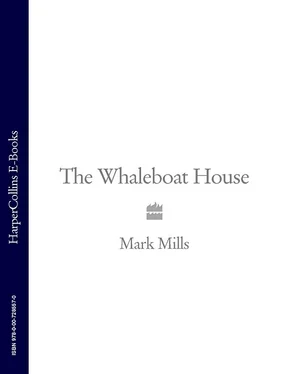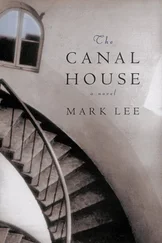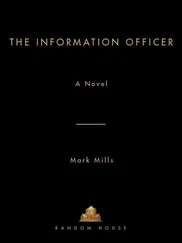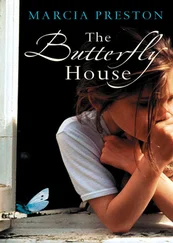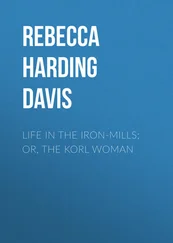‘What exactly did you do to her?’ Manfred’s tone remained accusatory.
‘Manfred, the gentleman has apologized,’ said George Wallace firmly. ‘He has explained the situation and he has apologized.’
Thankfully, at that moment the receptionist reappeared with the glasses of water. ‘The Medical Examiner will see you now, if you’d like to come with me.’
Manfred stared forlornly at the glass in front of him. Without touching it, he got to his feet and followed his father.
Gayle lingered a moment longer, sipping from her glass. ‘I’m sorry,’ she said. ‘They were very close.’
As she left, Hollis called after her. ‘Miss Wallace.’ She turned back. ‘Try Yardley’s Funeral Home. They’re on Newtown Lane.’
‘Yardley’s. Thank you.’
And she was gone.
Eight
Oyster shells crunched beneath the tires as Conrad turned into the parking lot. The lone headlight swept over the other vehicles already gathered there before settling on a space in the shadows, beyond the pool of light thrown by the lamp above the door of the ramshackle oyster house.
Conrad stepped from the vehicle. It was a still, warm evening, humid and close, the breeze too light to cool the skin. He could hear the hum of raised voices from inside the hall, then a barked reprimand calling everyone to order.
He shouldn’t have come, but what else was he going to do, sit at home with his swirling thoughts? He needed distraction and this was as good as anything on offer. He pulled the tobacco pouch from his pocket, laid it on the hood of the Model A and started to roll a cigarette.
The moon cast an inviting trail across the grand sweep of Gardiner’s Bay, connecting the steep bluffs south of Accabonac Creek to Promised Land where Conrad now stood. This was the northern limit of Napeague, the narrow thread of land that connected the high ground of Amagansett to that of Montauk.
Not even half a mile to the south lay Conrad’s house and the battered Atlantic coast. Here on the lee shore it was an altogether different world, a place of calm and shelter where the south westerly winds came in fits and starts, broken up by their passage across the upland, and the waters lapped lazily at the arcing sand beach.
The fishermen weren’t fooled by this. They knew from hard experience that the bayside sea could still turn on you in the beat of a heart. One winter just before the war Conrad had been helping Milt Collard run building stock out to Gardiner’s Island when the wind suddenly backed around to the northeast. With a crew of twelve workmen and a bellyful of bricks, Milt’s old cut-down schooner, the Osprey , was already slung low in the water when they set off from Three Mile Harbor, the big 671 diesel straining under the load.
Ten minutes out, the wind turned suddenly and breezed up. An angry chop soon gave way to battle-lines of whitecaps, four feet high, which advanced on the Osprey , slapping into her with remorseless regularity. In no time at all these had grown to six feet. Ice cakes left over from the big freeze began surfing down the face of the waves and shattering against the schooner’s bow.
By now they were pumping and bailing by hand, a bucket brigade of men fighting to keep the vessel afloat. Milt stood in the small pilothouse in the stern, fighting the wheel, water flooding knee-high around him each time the Osprey slumped into a trough.
‘Ditch the cargo!’ he screamed. ‘Goddamnit, ditch the goddamn cargo!’
You never saw a bunch of men move so fast. Instead of water, they now started heaving bricks over the side, no formal chain this time, half of the crew scrabbling in the hold, the others ducking the hail of bricks; the blind panic of men looking death squarely in the eye. There were no life jackets on board, not that they’d have done you any good in water that cold. No, if the Osprey went down, you’d have been better off grabbing an anchor and getting it over with.
It was a close call, but they had made the shelter of Gardiner’s Island, riding out the vicious squall. The wind dropped abruptly and Milt swung the Osprey around, heading back to Three Mile Harbor. Not one word had been shared by the ashen-faced crew since Milt first barked his order at them.
‘You lazy sonsabitches,’ he now said. ‘Two hours to load, two minutes to offload. Now I know you been leadin’ me a dance.’
A handful of men, Conrad among them, erupted in fear-tinged laughter. They quickly figured from the look in the eyes of those who knew Milt a whole lot better that any humor in the remark was entirely of their own imagining.
Milt later admitted that he’d never seen anything quite like it out on Gardiner’s Bay, and this from a man who’d skippered bunker boats out of Promised Land for more than twenty years. Fair weather or foul, the long steamers would put out from the dock in search of the spiny little menhaden fish – bunkers, as they were known locally – that clogged the waters off the South Fork during the warmer months. The Smith Meal Company had a dock and a clutter of hangars where endless tons of the fish were processed. Hauled from the depths in giant purse-seine nets, they were boiled to extract their oil, the remaining pulp scooped from the vats, dried and ground down into fish meal. It was a gut-wrenchingly malodorous process, one that had given Promised Land its name, for the place stank to high heaven – a smell so pungent it tarnished the silver coins in the pockets of the workers.
When the plant was in production, the tall smokestacks belching clouds of fetid steam, the residents of Amagansett lived in dread of an easterly breeze. The stench would descend on the village like a curse, clawing at your nose and throat, clogging your pores. Even during the winter months, when the vats lay cold and still, there was no escaping the smell out at Promised Land. Over the years it had permeated the wooden cladding of the factory buildings and the shanties thrown up for the hordes of itinerant laborers, it had seeped into the pale sand, and it seemed to drip from the branches of the pitch pines.
The fish-meal plant sprawled on the edge of Gardiner’s Bay like a rancid dishrag beside a sink, and yet its presence there had safe-guarded the area. For who in their right mind would want to build in the shadow of such a foul-smelling beast? The low dunes behind the curving beach were unencumbered by houses. More importantly, the fragile hinterland of Napeague had been spared the usual depredations of development. Its deerfeed flats, pine copses and dune hills were still laced with freshwater bogs that rang with the sound of peeper frogs in early summer. Cranberry, blueberry and sundews were in abundance, along with curly-grass ferns, staghorn lichens, Hudsonia, tiny orchids and strange edible fungi highly prized by those of Italian and French descent, who’d been known to come to blows during the short picking season.
Napeague meant ‘Water Land’ in the language of the Montauketts, and the area was a living testament to the happy co existence of both elements. The relationship, tentatively forged over the centuries, recalled an era when Napeague had been open water separating the hills of Montauk from the main body of Long Island.
Some disputed this notion, but Conrad was convinced of it. How else to account for the skeletal remains of the whale he had discovered while out roaming one spring morning? The bleached vertebrae, each as big as a water pail, lay part-buried beneath a tangle of bearberry bushes a quarter of a mile inland at a spot where Napeague was half a mile wide. The only explanation was that the creature had been cast up on a shallow bar linking the two land masses, and that over the many years this slender umbilicus had grown inexorably through a process of accretion, sand layered upon sand, scoured from the ocean bluffs of Montauk and deposited by the ocean.
Читать дальше
